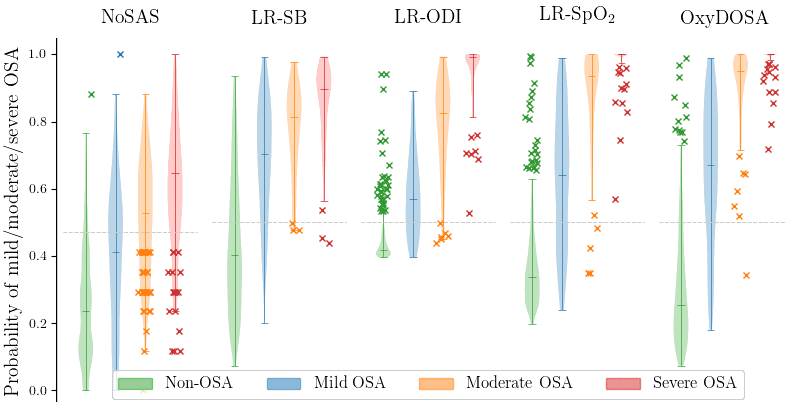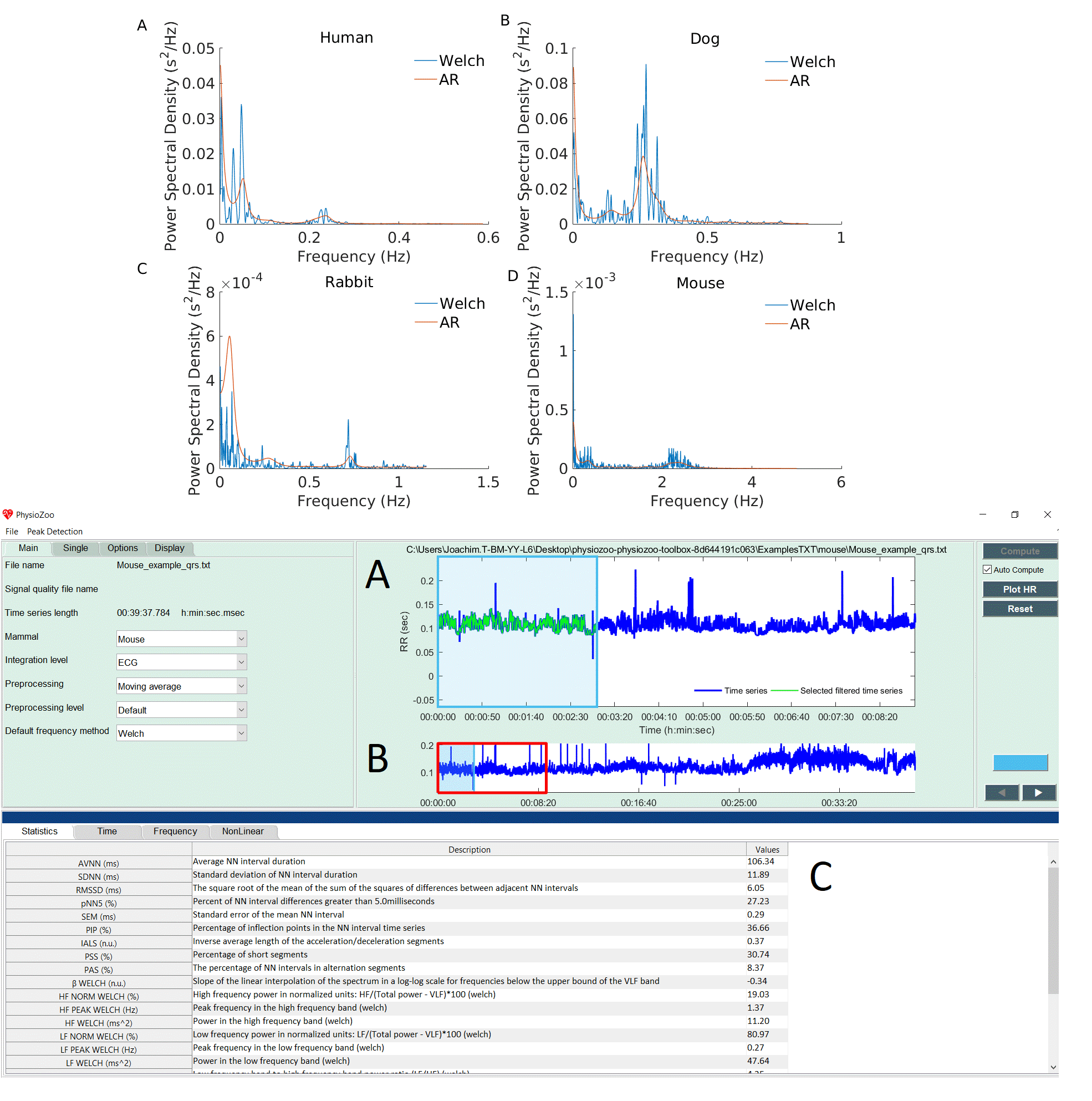
The OxyDOSA web applet implements a machine learning model trained on polysomnography recordings of a population of 887 individuals from São Paulo. It predicts the likelihood of obstructive sleep apnea given few demographic and anthropomorphic information and standard overnight oximetry features. Behar, J., Palmius, N., Li, Q., Garbuio, S., Rizzatti, F., Bittencourt, L., Tufik, S., Clifford, GD. Feasibility of single channel oximetry for mass screening of obstructive sleep apnea. EClinicalMedicine, 2019.
Try OxyDOSA
PhysioZoo is a collaborative platform dedicated to the study of the non-invasive fetal electrocardiography (NI-FECG) and toward ensuring reproducible NI-FECG research. The software includes state-of-the art algorithms for NI-FECG extraction as well as a mathematical model that can be used to generate abdominal electrocardiographic mixtures. ehar, J., Andreotti, F., Zaunseder, S., Li, Q., Oster, J., & Clifford, G. D. (2014). An ECG simulator for generating maternal-foetal activity mixtures on abdominal ECG recordings. Physiological measurement, 35(8), 1537.
Try FECGSYN

PhysioZoo is a collaborative platform dedicated to the study of the heart rate variability (HRV) in mammals’ electrophysiological recordings. The software includes all standard HRV algorithms as well as a user interface that can be used for exploring the data and running the HRV algorithms on selected sections of data. Behar, J. A., Rosenberg, A. A., Weiser-Bitoun, I., Shemla, O., Alexandrovich, A., Konyukhov, E., & Yaniv, Y. (2018). PhysioZoo: a novel open access platform for heart rate variability analysis of mammalian electrocardiographic data. Frontiers in physiology, 9, 1390.
Try PhysioZoo